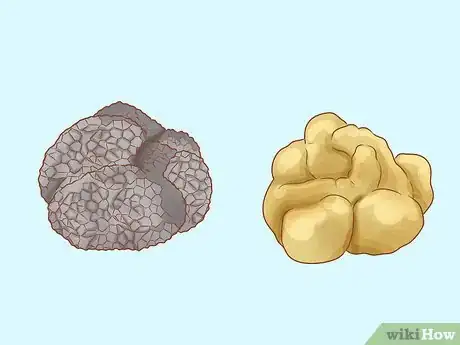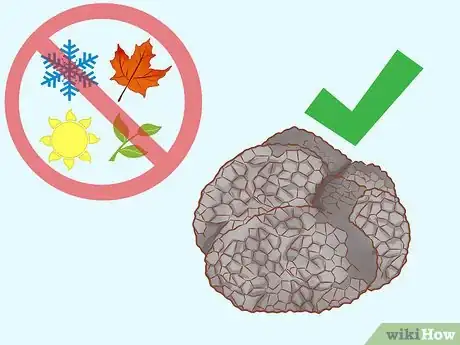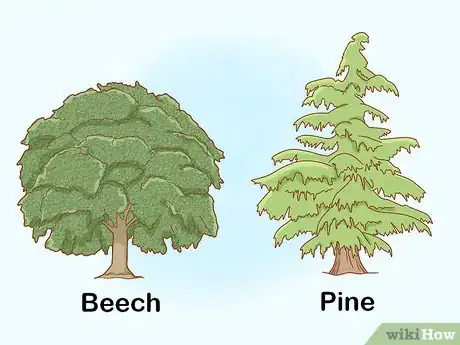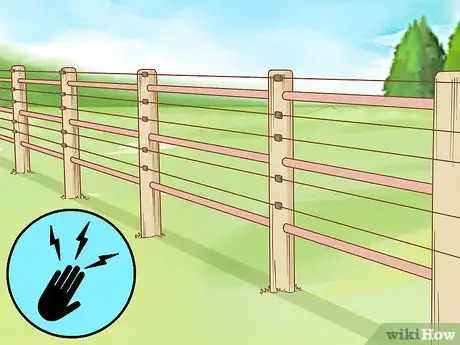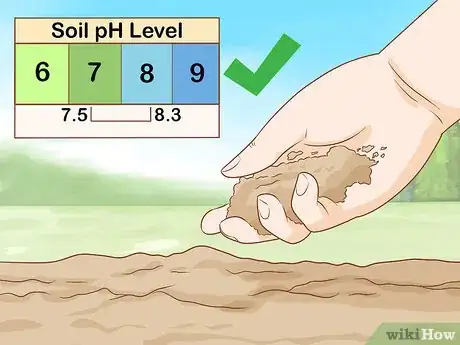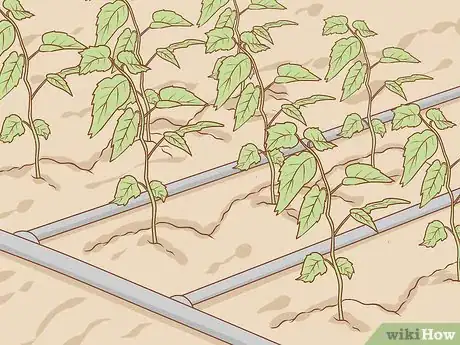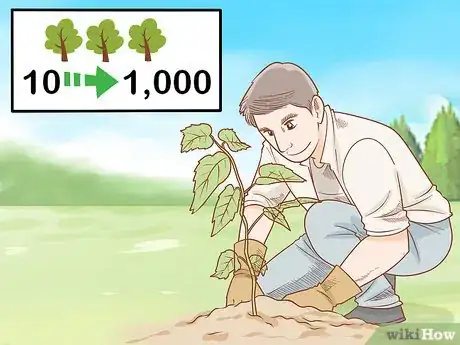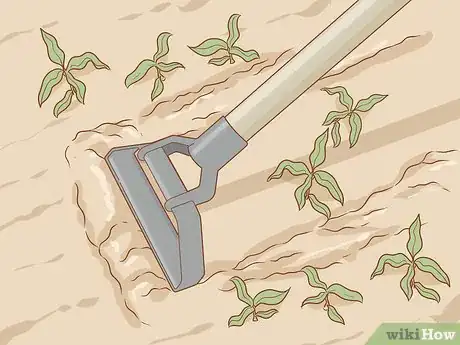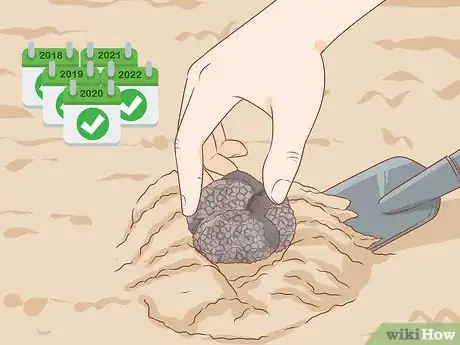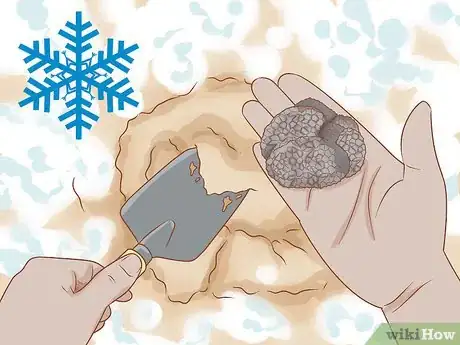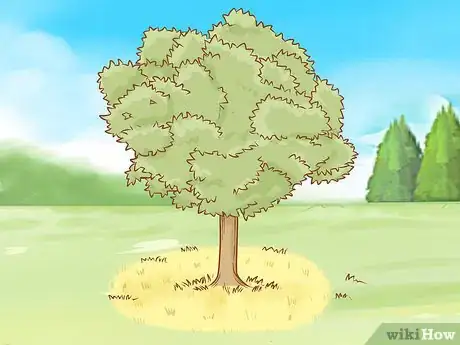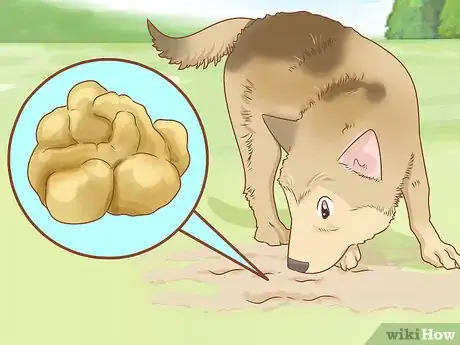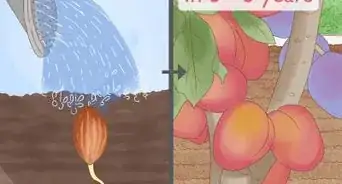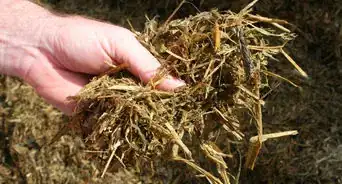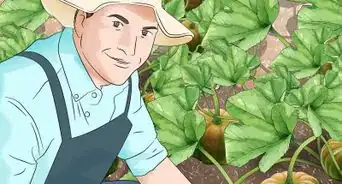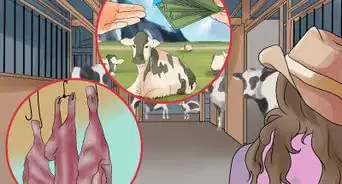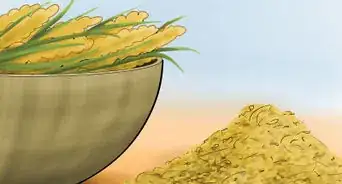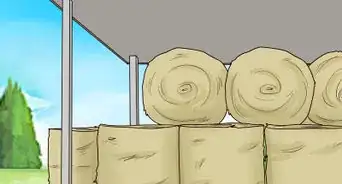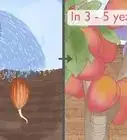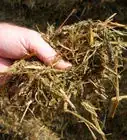This article was co-authored by wikiHow Staff. Our trained team of editors and researchers validate articles for accuracy and comprehensiveness. wikiHow's Content Management Team carefully monitors the work from our editorial staff to ensure that each article is backed by trusted research and meets our high quality standards.
There are 7 references cited in this article, which can be found at the bottom of the page.
This article has been viewed 162,016 times.
Learn more...
Truffles are considered a delicacy and they are incredibly flavorful. They are also more difficult to cultivate than other edible fungi. Growing truffles can be a lucrative agricultural venture for this reason. It will take at least a few years before you can start harvesting truffles, so get started now to grow your own truffles.
Steps
Planning Your Truffle Farm
-
1Choose black or white truffles if you want a lucrative crop. The main types of truffles are black and white. Black truffles may be more lucrative, but both types are valuable. The type of truffles you grow is really up to you.[1]
- Keep in mind that black and white truffles will only grow in regions that have 4 distinct seasons, so they may not grow well in the southern United States, or in countries where it does not get very cold in the winter.[2] However, some truffles are known to grow even in harsh climate regions.[3]
- You will need to purchase inoculated seedlings to grow truffles. These are young trees that have been injected with truffle spores. Check with the company that sells the trees to find out which types of truffle varieties they offer.
- Make sure to purchase inoculated seedlings from a certified grower to ensure that they are high quality.[4]
-
2Choose burgundy truffles if you do not have 4 distinct seasons. If you live in a region that does not have 4 distinct seasons, then you may consider a truffle variety that grows in a moderate climate, such as the burgundy truffle. Check with the company you buy inoculated seedlings from to find out which variety will work best for your climate.[5]Advertisement
-
3Find a large, open area to grow your truffles. You will need a large, open area to plant your trees. Due to the high cost of truffles, you may have the occasional intruder, so plant your trees in a secure location, such as well within the borders of your property.[6]
- Avoid growing truffles near a road or on a piece of land that you cannot monitor easily.
-
4Choose trees that support truffle growth. The company you purchase your seedlings from will use a truffle supporting tree, but you can select which one you want to use. There are several tree varieties that support truffle growth. These include:[7]
- Oak
- Hazelnut (Keep in mind that the nuts are unlikely to be of high quality since most of the tree's nutrients will be diverted to the truffles.)[8]
- Beech
- Birch
- Hornbeam
- Pine
- Poplar
-
5Put up a good fence around the area to keep out intruders. Truffles are coveted by animals and humans for their flavor. Humans may also try to steal truffles because of the high price that they can fetch. To protect the fruits of your labor, consider putting a high fence around the area where you will be growing the truffles.[9]
- For added protection, you might even consider putting up barbed wire or installing an electric fence.
Planting the Trees
-
1Make sure the soil’s pH level is between 7.5 and 8.3. A high pH level is ideal for growing truffles. The soil should have a pH level between 7.5 and 8.3 for truffles to grow. Check with local agricultural organizations. They may off free or low-cost soil testing.[10]
- If the soil is not within the pH range for growing truffles, then you may want to select a different area to grow them. It may be difficult to change and control the pH of such a large area.
-
2Develop an efficient irrigation system to water your trees. Your trees will require lots of water to grow and this will help the truffles to thrive as well. Consider installing an irrigation system to provide the trees with 1 inch (2.5 cm) of water per week.[11]
- For a smaller operation, you may be able to provide your trees with plenty of water using a long hose. However, for a larger operation, a good irrigation system is a must.
-
3Plant between 10 and 1,000 trees. You will need to fill an area with lots of trees to ensure that the fungus spores spread and thrive. If you are just experimenting with truffles, try planting 10 inoculated tree seedlings within a few feet of each other. To get a larger crop of truffles, plant between 100 and 1,000 trees on the plot of land you will be using to grow truffles.
- Avoid planting an inoculated tree near one that might host other types of fungi, such as a poplar, oak, conifer, or nut tree.[12]
-
4Weed with a hoe during the first couple of years. Weeds and other types of plants will pull valuable nutrients away from the truffles, so it is important to remove them when you spot them. However, mowing in the first 2 years is not recommended. Instead, use a hoe to dig up any weeds or other plants that spring up near the base of the trees.[13]
- Do not use weed killer or other toxic chemicals on the trees or surrounding areas as they may seep into the ground and poison your truffles.
Harvesting the Truffles
-
1Wait to harvest until the trees are at least 5 years old. Expect to wait about 5 years to harvest your first truffles. Some truffles may be ready for harvest as early as 3 years after planting or not until 10 years after planting, but 5 years is the average.[14]
- Avoid digging into the base of your trees before the truffles are ready. You may end up damaging the growing truffles and losing profit as a result.
-
2Plan to harvest in the winter. Your truffles should be ready to harvest at the beginning of winter. Wait for the temperatures to drop and then check to see if any truffles are ready for harvest.[15]
- Plan to harvest in early winter before the ground starts to freeze. If you wait too long it may be difficult to dig up the truffles.
-
3Watch for dead grass at the base of the tree as a sign of growth. The grass will look like it has been burnt right around the base of a tree that has truffles growing underneath it. This is because the fungus is killing off the other plants in the area around the tree.[16]
- The dead grass around the base of the tree is called the “brulee.”
-
4Consider training a dog to find truffles. A well-trained dog can make harvesting truffles much easier for you. You can train the dog to find, dig up, and bring you the truffles. Use positive reinforcement to teach your dog to find truffles and bring them to you. For example, every time your dog retrieves a truffle, make sure to offer lots of praise and a treat.
- You can also use a female pig to find truffles for you, but you have to watch the pig closely when they find a truffle because they will eat it.[17]
Community Q&A
-
QuestionHow do you store truffles after harvesting and before selling them?
 Community AnswerFor the most part, you can't. Truffles are kept alive by a mycelium network that absorbs nutrients, and once the truffle has been harvested, storing them will have little to no effect.
Community AnswerFor the most part, you can't. Truffles are kept alive by a mycelium network that absorbs nutrients, and once the truffle has been harvested, storing them will have little to no effect.
References
- ↑ https://www.mssf.org/cookbook/truffles.html
- ↑ https://morningchores.com/how-to-grow-truffles/
- ↑ https://www.mssf.org/cookbook/truffles.html
- ↑ http://trufflegrowers.com.au/growing-truffles/
- ↑ http://www.americantruffle.com/faqs/
- ↑ https://morningchores.com/how-to-grow-truffles/
- ↑ https://morningchores.com/how-to-grow-truffles/
- ↑ http://www.americantruffle.com/faqs/
- ↑ http://theveggielady.com/how-to-grow-truffles/
- ↑ https://morningchores.com/how-to-grow-truffles/
- ↑ https://morningchores.com/how-to-grow-truffles/
- ↑ http://theveggielady.com/how-to-grow-truffles/
- ↑ https://morningchores.com/how-to-grow-truffles/
- ↑ https://www.mssf.org/cookbook/truffles.html
- ↑ https://morningchores.com/how-to-grow-truffles/
- ↑ http://theveggielady.com/how-to-grow-truffles/
- ↑ https://www.mssf.org/cookbook/truffles.html
About This Article
To grow truffles, first you’ll need to buy tree seedlings that have been inoculated with truffle spores from a nursery. Then, plant the inoculated seedlings in a secure, fenced-off area. Keep in mind that truffles need 4 distinct seasons in order to grow. Install an irrigation system around the seedlings to keep them watered. You’ll need to maintain a soil pH between 7.5 and 8.3 and keep the area free of grass and weeds so the truffles thrive. It will take around 5 years until your truffles are ready to be harvested. To harvest them, dig them up around the base of the trees at the beginning of winter. Some truffle growers train a dog to sniff out truffles hidden underground to make harvesting easier. To learn how to train your dog to find truffles, read on!
